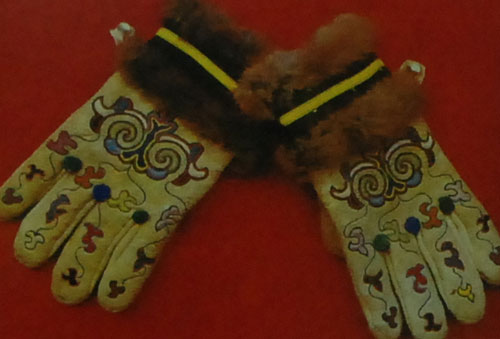
Gloves made of wild dog skin.
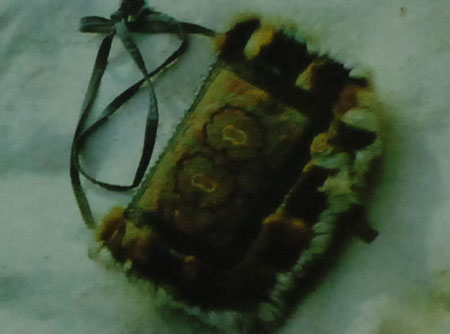
A bag made of roe deer skin.
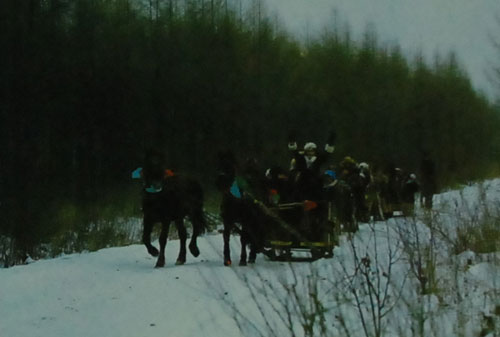
Sledges are the major transport in winter.
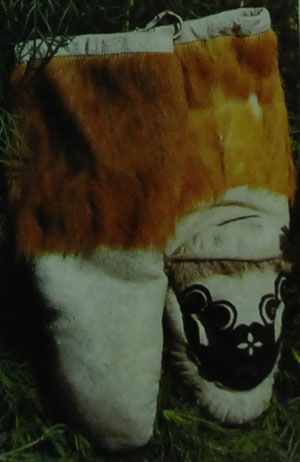
Children wear such deer skin boots.
The Oroqens, with a population of 6,965, mainly live in Oroqen Autonomous Banner, Morin Dawa Banner, Arun Banner, Zhalantun City of Inner Mongolia Autonomous Region and Tahe, Huma, Xunke, Jiayin counties and Heihe City of Heilongjiang Province.
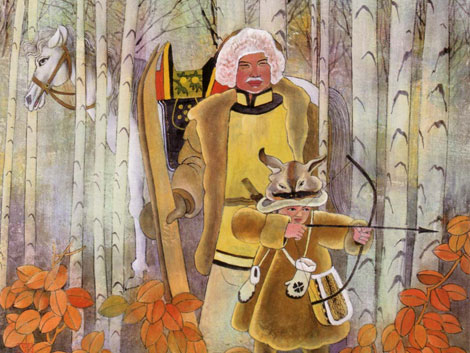
The Oroqens make their homes in the Greater and Lesser Hinggan Mountains, which form the backbone of the Northeast China and the Heilongjiang River Basin. The Greater Hinggan Mountains, with towering peaks, deep valleys and meandering streams, extend from the northeast to the southwest in Heilongjiang Province and Inner Mongolia Autonomous Region.
The Lesser Hinggan Mountains stretch gently from the upper reaches of the Heilong River to the southeast. The mountains, covered with primeval forests, yield many medical herbs and hardy trees such as larch, Korean pine, birch, oak and poplar. The special mountain products are Jew's ear, mushroom, hazelnut and persimmon. The thick forests are home of a great number of rare beasts and birds. For generations, the Oroqens roamed and hunted deer in the immense forests all the year round with their guns, horses and hunting dogs until the 1950s.
The word Oroqen has two meanings. One is "people living high in the mountains"; the other is "people who use reindeer". Before the Qing Dynasty, the Oroqens were called the Suolun, Dasheng or Shilu tribe. After the founding of new China, they were generally called the Oroqen Nationality.
The Shamanist Oroqens worship their ancestors and adore animism. Their language, without a script, belongs to the Tungus branch of the Manchu-Tungusic group of the Altaic language family. Many Oroqens speak the Chinese, Ewenki and Daur languages. They generally write in Chinese.
Various birch bark wares and birch bark cockboats are some of the most characteristic handicrafts of the Oroqens. The exquisite patterns on birch boats are the vivid illustration of their long hunting tradition.
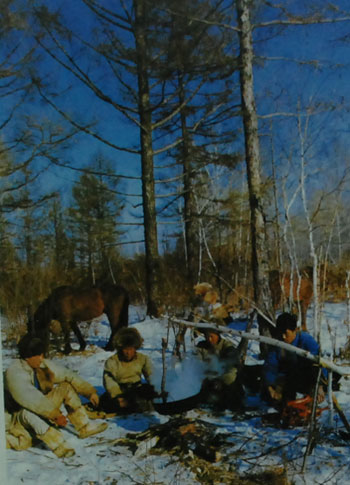
Cooking in the open.
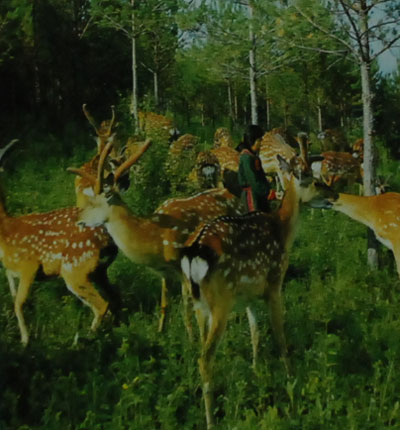
Reindeer raised by Oroqen people.
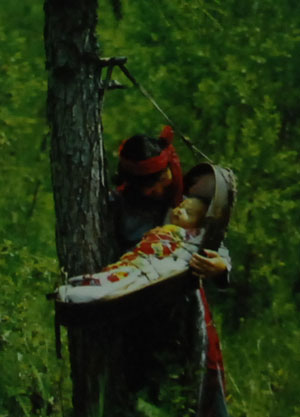
When an Oroqen mother works in the field, she simply hangs the cradle on a branch.
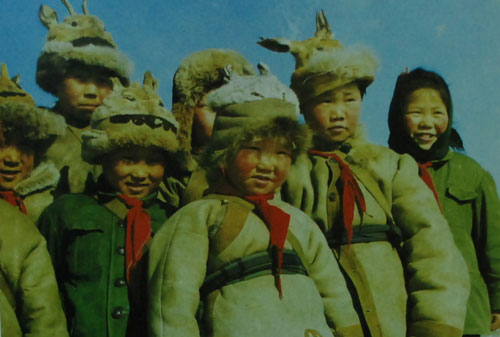
Oroqen children wear hats and coats made of roe deer skin.
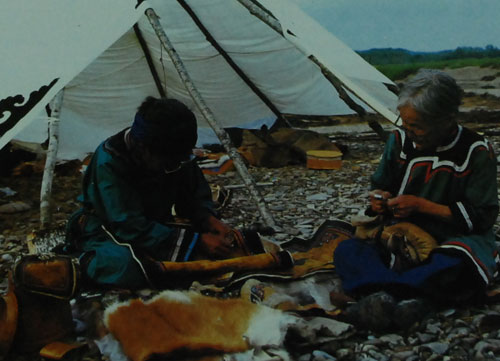
Oroqen women making clothes with roe deer skin.





